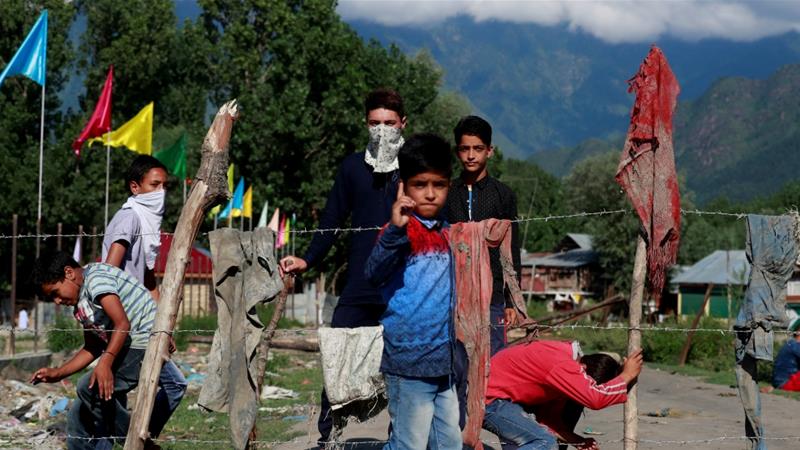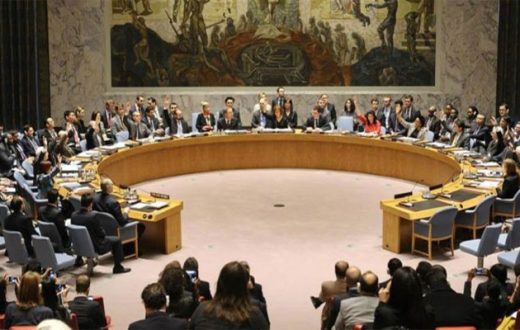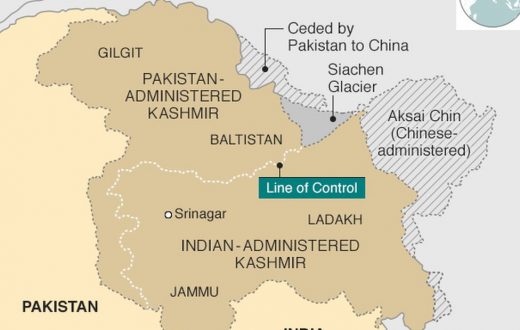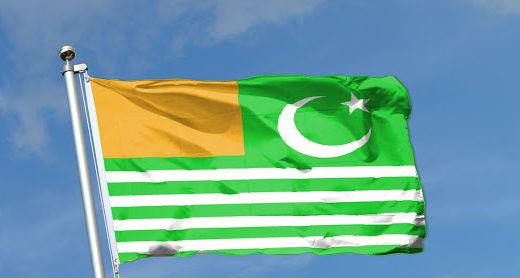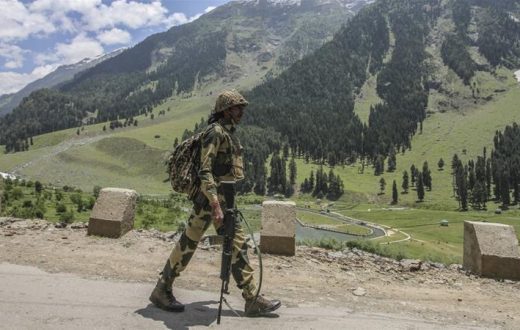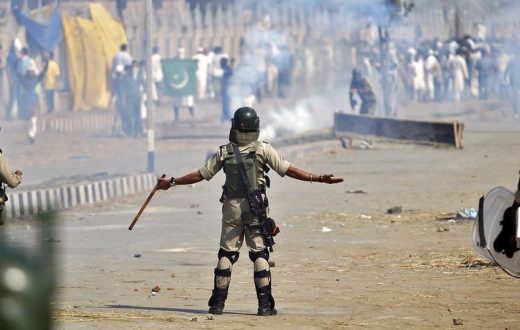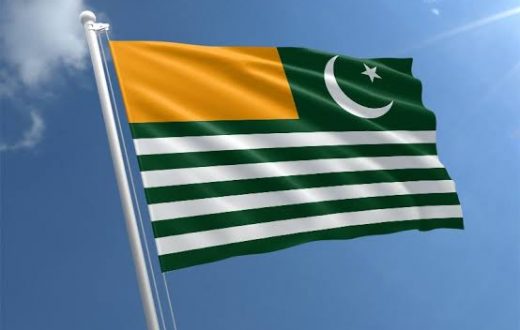Residents in Soura neighbourhood of Srinagar, Indian-administered Kashmir, plant barricades to keep security forces out.
For more than a week, the young men of Soura, a densely-populated enclave in Indian-administered Kashmir’s main city of Srinagar, have been taking turns to maintain a round-the-clock vigil at the entry points to their neighbourhood.
Each of the dozen or so entrances have been blocked with makeshift barricades of bricks, corrugated metal sheets, wooden slabs and felled tree trunks. Groups of youths armed with stones congregate behind the biggest obstacles.
Their aim: to keep Indian security forces, and particularly the paramilitary police, out of the area.
“We have no voice. We are exploding from within,” said Ejaz, 25, who, like many other residents in Soura interviewed by Reuters news agency, gave only one name, saying he feared arrest.
“If the world won’t listen to us too, then what should we do? Pick up guns?”
Soura, home to about 15,000 people, is becoming the epicentre of resistance to the government’s removal on August 5 of the partial autonomy enjoyed by Jammu and Kashmir, the country’s only Muslim-majority state.
The enclave, which has effectively become a no-go zone for Indian security forces, is now a barometer of the ability of Prime Minister Narendra Modi’s Hindu nationalist government to impose its will in Kashmir after its dramatic move.
The change, the government said, was necessary to integrate Kashmir fully into India, tackle corruption and nepotism, and speed up its development, which Modi says is the key to securing lasting peace and defeating “terrorism”.
A neighbourhood street is blocked with tree branches by Kashmiri protesters during restrictions in Srinagar [Danish Ismail/Reuters]
In Soura, it is hard to find anyone who supports Modi’s move. Many of the more than two dozen residents interviewed by Reuters over the past week referred to Modi as “zaalim”, an Urdu word meaning “tyrant”.
The constitutional change will allow non-residents to buy property in Jammu and Kashmir and apply for jobs in local government.
Some Muslims in Kashmir say they fear that India’s dominant Hindu population will overrun the lush state at the foot of the Himalayas and that Kashmiris’ identity, culture and religion will be diluted and repressed.
“We feel like we are guarding the LoC here,” said Ejaz, referring to the Line of Control, the highly militarised de facto border between the Indian and Pakistan-controlled parts of Kashmir.
For decades, Kashmir has been a source of friction between nuclear-armed India and Pakistan. Both nations claim the region in full and have fought two wars over the territory since 1947.
Residents in Soura say dozens of people have been injured in clashes with the paramilitary police over the past week. It is unclear how many have been detained.
A spokesman for the Jammu and Kashmir government declined to answer questions from Reuters.
The Indian government’s Home Ministry did not return calls and emails seeking comment.

